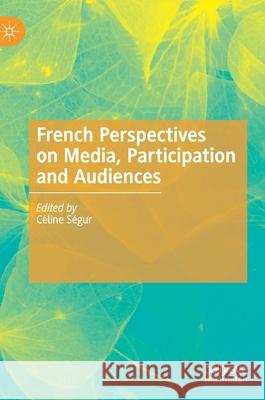French Perspectives on Media, Participation and Audiences » książka
topmenu
French Perspectives on Media, Participation and Audiences
ISBN-13: 9783030333454 / Angielski / Twarda / 2020 / 205 str.
French Perspectives on Media, Participation and Audiences
ISBN-13: 9783030333454 / Angielski / Twarda / 2020 / 205 str.
cena 403,47
(netto: 384,26 VAT: 5%)
Najniższa cena z 30 dni: 385,52
(netto: 384,26 VAT: 5%)
Najniższa cena z 30 dni: 385,52
Termin realizacji zamówienia:
ok. 16-18 dni roboczych.
ok. 16-18 dni roboczych.
Darmowa dostawa!
Kategorie:
Kategorie BISAC:
Wydawca:
Palgrave MacMillan
Język:
Angielski
ISBN-13:
9783030333454
Rok wydania:
2020
Dostępne języki:
Ilość stron:
205
Waga:
0.41 kg
Wymiary:
21.01 x 14.81 x 1.42
Oprawa:
Twarda
Dodatkowe informacje:
Wydanie ilustrowane











